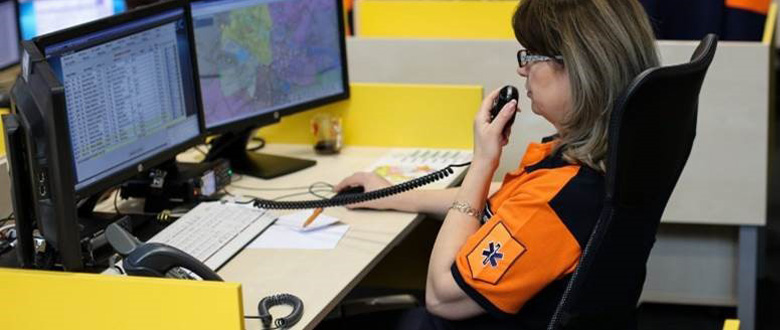New provisions proposed by ANCOM regarding the access to 112 emergency services
23.08.2022

ANCOM submits to public consultation a draft decision on reviewing the decision on establishing communications to the National Unique System for Emergency Calls (SNUAU), with a view to transpose into the national legislation the new European provisions. The proposed changes concern mainly the swift updating of the databases sent by the providers to allow locating the caller, the setting of a unique caller identifier for the calls initiated on mobile networks, measures dedicated to ensuring the access to 112 emergency service of the disabled users, as well as the introduction of some provisions on locating the caller who uses location-independent services.
Proposed changes
To make sure that the end-users who initiate calls to 112 benefit from the help of the specialised intervention agencies (Police, Ambulance, Fire Department etc.) in due time, their location must be identified as accurately as possible, and this requires the constant updating of the databases containing the primary location information. Thus, it is proposed that each provider of public mobile electronic communications networks permanently updates these databases, through a secured data channel, immediately after the occurrence of changes of the contained information, susceptible of prejudicing the location process. ¬Ý
Furthermore, in the case of the providers offering voice over Wi-Fi services, the changes foresee the transmission to the 112 emergency service of the calls initiated on a data connection from another electronic communications network, if the caller is in an area without a signal in any of the public mobile electronic communications networks.¬Ý
Access to emergency services in “national roaming” and from location-independent numbers
The draft proposed by ANCOM also approaches the cases where the calls to 112 emergency services are made in “national roaming”, providing in this case the transmission of the unique caller identifier, used both for identifying the person in question and in the process of locating the respective person. In this sense, the IMSI - International Mobile Subscriber Identity will be used.
Where location-independent services are used, the providers of such services will make available to their subscribers a fast and free of charge solution to update the location information, while informing them every month (e.g. by means of the invoice, e-mail or SMS) on the benefits of completing and updating the location information when calling 112 and also taking all the measures for obtaining a confirmation from them regarding the reception of this information. Still in view of ensuring the availability of the location information, the draft includes a provision which reads that the location-independent service is to be activated only upon the subscriber’s making available to the provider of the location information.
Access of disabled users to emergency services
To ensure the disabled persons’ access to 112 emergency service, the providers of publicly available number-based interpersonal communications services have the obligation to ensure the origination and transmission to the unique emergency calls centre of the emergency communications made over the total conversation service by the end-users with hearing and/or speech impairment or with hearing/speaking disorder proven by a medical document, including in the cases when these users are roaming in Romania.
Public consultation
The draft decision amending and completing the Decision of the president of the National Authority for Communications no.1023/2008 on establishing communications to the National Unique System for Emergency Calls is available for consultation here. The interested persons are invited to send their comments and suggestions by 02.09.2022, to the ANCOM headquarters (2 Delea Noua Street, Bucharest 3), or by means of the Online Registry, or by means of the Authority’s regional divisions. Comments may also be sent by fax to +40 372 845 402 or by e-mail to consultare@ancom.ro.


 top
top